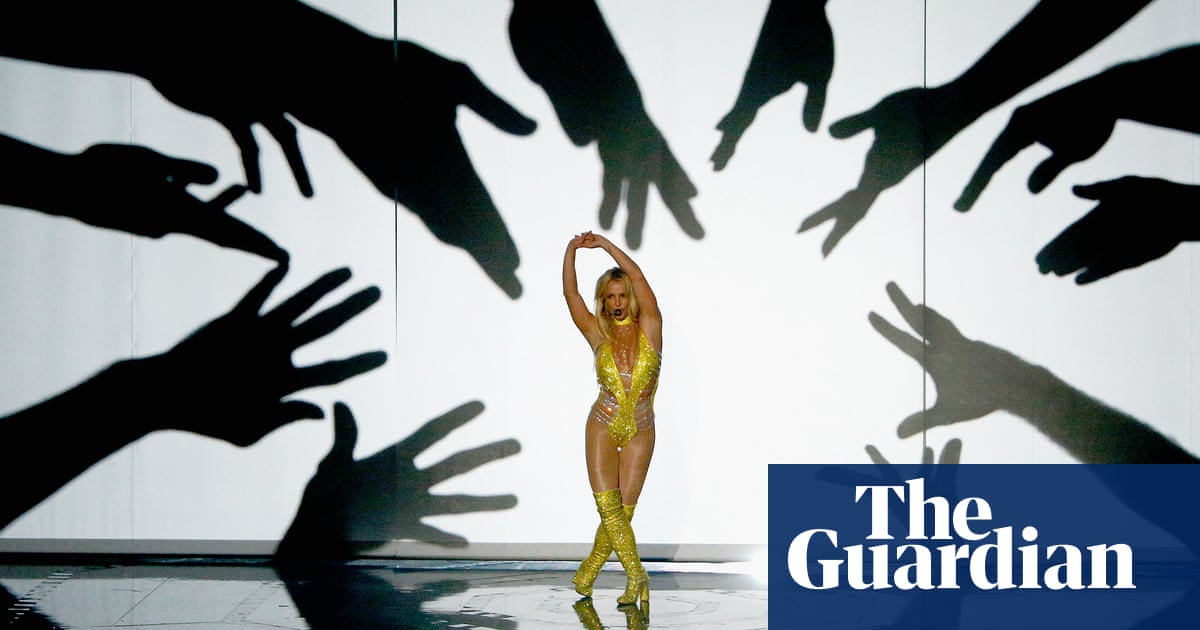
In 2006, a 16-year-old girl was looking at greetings cards in a branch of Target in Tulsa, Oklahoma, when a male stranger took out a camera, crouched down and took a photograph up her skirt. The incident was caught on CCTV and witnessed by a security guard who notified police. But when the case came to court, the judge ordered that the charges be dismissed since the victim was “not in a place where there is a right to a reasonable expectation of privacy”.
For the journalist Sarah Ditum, the Tulsa incident typifies the uniquely disturbing misogyny of the early 21st century. The act of “upskirting” hadn’t been possible before the mid-00s when ownership of small digital cameras became commonplace. But press photographers had been shooting famous women this way for some time; the actor Emma Watson described how, during her 18th birthday celebrations, a photographer lay down on the floor to get a shot of her crotch.
It is the experience of women in the public eye in the 00s, specifically the intrusion and violation they endured, that is the focus of Ditum’s book. Drawing on celebrity case studies – among them Britney Spears, Aaliyah, Janet Jackson, Amy Winehouse, Kim Kardashian and Jennifer Aniston – it documents a culture that simultaneously invaded women’s privacy, delighted in their perceived humiliations and rained judgment on them for being anything less than perfect.
As a theme, this throws up an obvious difficulty: how to avoid rehashing the stories of women whose lives have already been so relentlessly documented? It is a measure of her subjects’ dizzying fame that Ditum refers to them all by their first names. But Toxic takes these familiar narratives and sets them in wider cultural, technological and socio-political context, taking in 9/11, burgeoning internet access, the rise of the sex tape, reality TV, the 2008 financial crash, social media and more. Such mass prurience and callousness doesn’t happen in a vacuum; this book is preoccupied not just with the “who” but the “how” and the “why”.
Ditum identifies what she calls the “Upskirt Decade” as beginning in 1998 with the release of Spears’s Baby One More Time, the video of which saw the singer dancing in school uniform, her shirt knotted to show off her midriff, and ends with the feminist backlash against Robin Thicke’s 2013 single Blurred Lines, notable for its coercive lyrics (“I know you want it”) and a video in which three fully dressed men get all creepy around a group of nearly naked models. In the early years of this period, feminism was seen as all but redundant. The 1990s had heralded a new raunch culture where women were cajoled into participating in their own sexualisation; not to join in would risk being seen as puritanical. Meanwhile, access to mobile phones, online messaging platforms and blogging sites led to a new generation of content creators, typified by Perez Hilton and Gawker (with its regular feature Gawker Stalker, which tracked sightings of famous people in real time), all building brands around tawdry celebrity gossip. Playing catch-up, the traditional media joined in – see Heat magazine, the Daily Mirror’s 3AM Girls and the Daily Mail’s “sidebar of shame” – detailing the lives of female celebrities with similar voyeurism and viscousness.
This isn’t to say all the women in Ditum’s book emerge as tragic figures brought down by forces beyond their control – Kardashian especially was able to turn it to her advantage. “She absorbed the fundamental lesson of the noughties,” notes Ditum, “which was that value could be conjured out of pure will. By accepting the commodification of her private life, her relationships, even her body … Kim was the one who made it.” And despite the “poor Jen” narrative spun by the media following her divorce from Brad Pitt, and the relentless speculation over whether she would procreate, Jennifer Aniston remains one of the most successful actors of her generation – appearing on Forbes’s Highest-Earning Actresses list for 15 consecutive years.
In the aftermath of #MeToo, there have already been reckonings over the treatment of Spears (through the documentary Framing Britney Spears and her recent memoir), Winehouse (in Asif Kapadia’s Amy) and Aaliyah (in Surviving R Kelly). Recent allegations against the comedian Russell Brand, which he denies, have further thrown the period’s rampant sexism and double standards into relief. Nonetheless, a broader account of this febrile period in 21st-century culture, which looks ever more baffling the further we travel from it, has felt long overdue. With the variously disturbing and illuminating Toxic, Ditum has risen to the challenge.
after newsletter promotion
